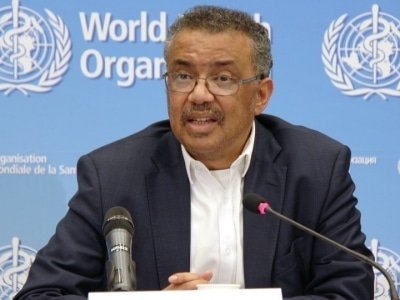Geneva, Sep 11 (IANS) The “Access to Covid-19 Tools Accelerator” (ACT-Accelerator), a global collaboration led by the World Health Organization (WHO) to fasten the development, production and equitable deployment of coronavirus diagnostics, therapeutics and vaccines, still faces a funding gap of $35 billion, WHO Director-General Tedros Adhanom Ghebreyesus said.
At a press briefing here on Thursday, Tedros said that to date the ACT-Accelerator has received $2.7 billion, which, though “generous and has enabled the robust start-up phase”, is still only less than 10 per cent of the overall needs, reports Xinhua news agency.
“The ACT-Accelerator will not be able to deliver on its goals without a significant increase in funding,” he said, calling for the rapid scaling up of the clinical trials as well as the manufacturing, licensing and regulation capacity.
The ACT-Accelerator supports research into promising vaccines, therapeutics and diagnostics.
So far, the WHO has registered around 180 vaccines that are in development, including 35 in human trials.
“Between now and the end of the year, we have a limited window of opportunity to scale up the ACT-Accelerator and fully enable the equitable allocation framework,” Tedros said.
“The world’s ambition to develop these tools as fast as possible must be matched by its ambition to ensure that as many people as possible have access to them,” he added.
Also on Thursday, the Facilitation Council of the ACT Accelerator met for the first time to provide political leadership and advocacy and to mobilize additional resources.
The leaders of Rwanda, Norway, South Africa, the European Union as well as the secretary general of the United Nations have expressed their support at the meeting.
Last month, Michael Ryan, Executive Director of the WHO’s Health Emergencies Program, said that six Covid-19 vaccine candidates had entered phase-3 trials.
Of the six, three are from China — made by Sinovac, Wuhan Institute of Biological Products/Sinopharm, and Beijing Institute of Biological Products/Sinopharm, Ryan said, adding the other three are made by the University of Oxford/AstraZeneca, Moderna/NIAID, and BioNTech/Fosun Pharma/Pfizer.
–IANS
ksk/
